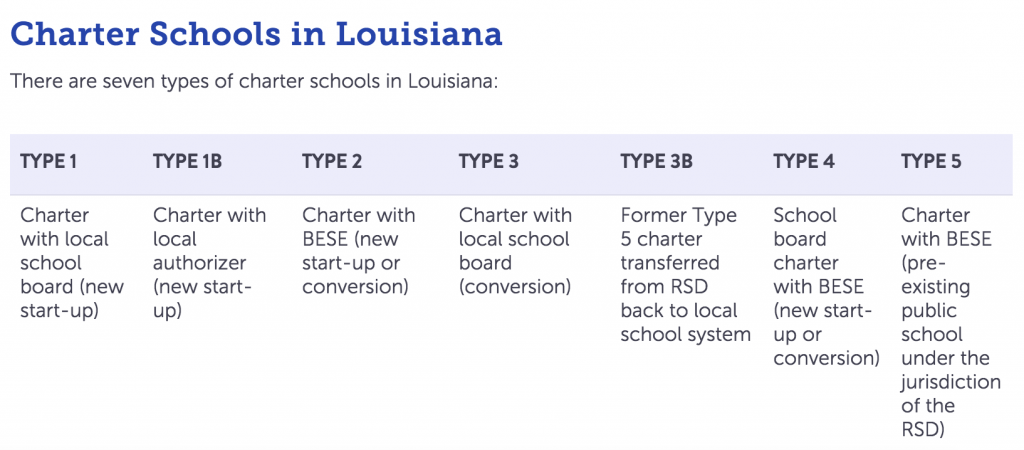Ever since John Bel Edwards’ upset victory in the gubernatorial race last fall, education reform supporters have worried that the Governor would try to roll back many of the policies that have helped raise student achievement across the state.
After all, during his tenure in the Louisiana House of Representatives, Edwards opposed Common Core and filed numerous bills to limit charter autonomy and accountability. Edwards also has strong ties to the state’s teachers unions – the Louisiana Federation of Teachers (LFT) and Louisiana Association of Educators (LAE) – both of which threw their full weight behind his campaign for governor.
I get painted as a person who is close to the teachers unions. … I'm not going to distance myself. – @LouisianaGov #lalege #lagov
— Julia O'Donoghue (@JSODonoghue) February 3, 2016
On Monday, reformers’ fears were realized when Governor Edwards issued his legislative agenda for the 2016 Regular Session of the Louisiana Legislature, which includes proposals to stem the growth of charter schools in A and B-rated districts and water-down teacher evaluations.
I. Limiting Type 2 Charters
One of the proposals backed by Governor Edwards is Senate Bill 170, filed by Senator Blade Morrish (R-Jennings), which would prohibit the Board of Elementary and Secondary Education (BESE) from approving Type 2 charter schools in districts with a grade of “A” or “B” in the most recent academic year. The bill is nearly identical to one that Edwards filed last year – House Bill 21 – that died in committee.

The Type 2 charter pathway was created to serve as an appeals process for applicants whose charter proposals were rejected by local school boards. BESE currently has the authority to approve Type 2 charters in any district in the state and the board has used that power to both approve and deny Type 2 charters based on the merits of their applications. In total, 35 of the 144 charter schools in Louisiana are Type 2 charters.
Some superintendents have tried to challenge BESE’s authority to approve charter schools in their districts, pointing out that every student who leaves a traditional public school for a charter takes their per-pupil funding with them. In fact, the Louisiana Association of Educators and Iberville Parish School Board both filed lawsuits against BESE over the issue in 2014, although a state judge rejected those claims.
As a result, district officials and other charter school opponents are now trying to frame their argument as an issue of local control over education. Governor Edwards hammered this very message home in his State of the State remarks, saying:
“We must restore more local control over how children are educated and tax dollars are spent to local school boards that perform well under our accountability system…Parents and taxpayers should be able to hold their school board members accountable for these decisions, and Baton Rouge bureaucrats should not have primary responsibility over such decisions in these districts.”
But lawmakers should ignore the rhetoric about local control because they have 41,799 reasons to reject Senate Bill 170. 41,799 is the number of students currently attending D/F-rated schools in A and B districts across the state, as shown in the table below.
Not surprisingly, most of the students in these schools are low-income students of color, a demographic that our public schools have often failed to adequately serve. Legislators should not take away BESE’s ability to provide these students and their families with the opportunity to attend high-quality charter schools.
II. Weakening Teacher Evaluations
For years, the state’s teachers unions have been making hysterical claims about Compass, Louisiana’s teacher evaluation system, and particularly its use of value-added measures (VAM), which use standardized test scores to measure student growth. At one point, LFT President Steve Monaghan even claimed that, “many of the state’s finest teachers will be labeled ‘ineffective’ because of a flawed rating system.”
Of course, the evaluation disaster that Monaghan and others promised never materialized, but that hasn’t stopped the unions from railing against evaluations. Therefore, it should come as no surprise that Governor Edwards’ legislative agenda includes three separate bills seeking to water down teacher evaluations:
- Senate Bill 279 filed by Sen. Wesley Bishop (D-New Orleans)
- Senate Bill 342 filed by Sen. Gerald Boudreaux (D-Lafayette)
- House Bill 723 filed by Rep. Edward Price (D-Gonzales) & Rep. Jeff Hall (D-Alexandria)
These three proposals, which are virtually identical, would reduce the VAM component of teachers’ overall evaluation scores from from 50% to 25%.
That would be a mistake. A recent study from researchers at Brown and Vanderbilt universities revealed that principals tend to inflate teachers’ scores on the subjective portion (i.e., classroom observations) of evaluations. The researchers interviewed 100 principals in an urban district about the evaluation process and later assessed the scores those school leaders assigned to teachers.
Their findings were shocking. As the Washington Post reported:
“Principals estimated that about 28 percent of teachers in their buildings were performing below proficient, but they also predicted that they would assign low ratings to just 24 percent, openly acknowledging that they would inflate some teachers’ scores. At the year’s end, however, it turned out that fewer than 7 percent of teachers actually received ratings below proficient.”
This tendency to inflate scores is exactly why VAM counts as 50% of the overall evaluation score. If we cut the VAM component to 25%, we will essentially give ineffective teachers a free pass.
In fact, that’s exactly what happened when BESE suspended the use of value-added measures in teacher evaluations during the transition to Common Core. In the 2012-13 school year, teachers in tested subjects were evaluated using the 50% value-added/50% observation formula. When the Compass scores were tallied, 32% of Louisiana teachers were rated Highly Effective, 49% were rated Effective Proficient, 8% were rated Emerging Proficient, and 4% were rated Ineffective.
The following year, VAM was temporarily replaced with teacher-created “Student Learning Targets,” or SLTs, which are a subjective measure of academic progress. As a result, Compass evaluation ratings rose and fewer ineffective teachers were identified in 2013-14, as shown below.
III. The Question for Lawmakers: Kids or Adults?
When lawmakers consider these bills in the coming weeks, they need to ask themselves a simple question: Are we going to prioritize the needs of children or the prerogatives of adults?
In the upcoming debate over Type 2 charters, legislators are likely to hear sentiments like those of Lafayette Superintendent Donald Aguillard, who recently called on lawmakers to hit the “pause button” on BESE-approved charters in his district, “until we have the time to put our strategic plan in place and we can demonstrate to the community of Lafayette that we are very concerned about helping our schools.”
Yet as we speak, there are eight schools in the Lafayette Parish School System that are failing to provide nearly 5,000 students with the education they deserve. Those students can’t hit a pause button in their lives and wait on school officials to get their acts together. Why would we keep BESE from offering those kids better educational options?
Likewise, the Governor’s friends from the teachers unions will no doubt tell legislators that the sky is falling due to teacher evaluations. But it’s important to remember that an effective teacher can have a huge influence on the educational outcomes of children. That’s why we have an obligation to ensure that every public school student is taught by a teacher who belongs in the classroom.
Lawmakers should always put the needs of children first and that means they should vote against these proposals.


Why be surprised when people do exactly what you expect them to do.
Why be surprised when people do exactly what you expect them to do.